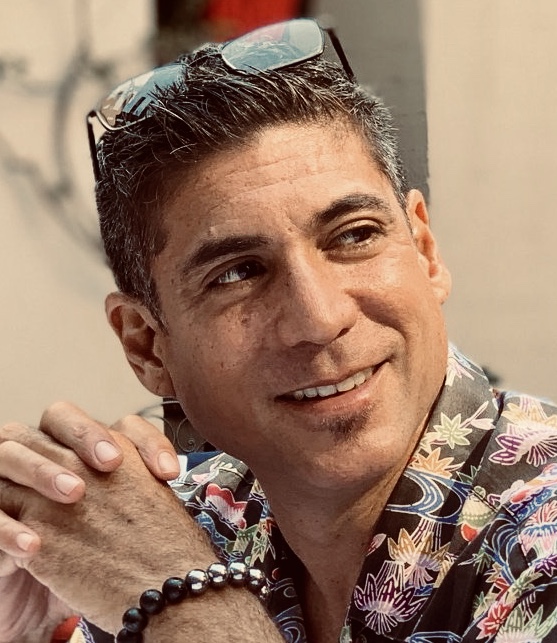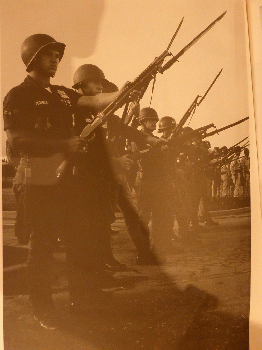While millions support US military withdrawal in Afghanistan, other military occupations even older go forgotten.
Building frustration from justice denied combusted on December 20, 1970, on the island of Okinawa, a former island nation violently incorporated into a growing Japanese empire, only to be destroyed in a hellish war with the USA, transforming Okinawa into a military colony that continues expanding 75 years later into the pristine bay of Oura at rural Henoko village today. This popular uprising by otherwise peaceful native islanders went largely forgotten outside of Okinawa immediately, begging not just a recap of what happened 50 years ago, but more so what other lessons from that event are still forgotten today?
In summary, the Koza Uprise more often mistranslated and misunderstood as "the Koza Riot," was a last straw in the patience of Okinawans disproportionately burdened with the concentration of US military forces into a tiny island the size of the city of Las Angeles. Okinawa became a colony of Japan who was more than willing to relinquish Okinawa to US military control as part of restoring Japan's sovereignty having lost it to the USA. In addition to taking by force the best lands from Okinawans, the US military also usurped their political, economic and human rights, which continues to fuel the Okinawan peace movement in the present. Ultimately under US military authority, criminal violence by US service-members against Okinawans was routinely dismissed or minimized by the military legal system. After yet another vehicular accident by a drunk soldier, aspontaneous uprising by otherwise peaceful Okinawans erupted after concerns MPs on the scene would disappear the incident, as had been happening with other similar crimes against local civilians with impunity.
In the end, several thousands of Okinawans spontaneously filled the streets stopping vehicles with military license plates, tossing out drivers and torching over 80 cars after six hours of chaotic struggle between local insurgents and local and military authorities. The uprising did not stop at the base gates, but stormed the gates of Kadena Air Base and burned down some administrative buildings. More than 60 Americans were hospitalized.
What happened and continues to happen in Okinawa, is unfortunately not unique. The USA began its practice of illegally overthrowing sovereign nations with a handful of other empires in the 19th Century as an evolution from its genocide of First Nation peoples. The military incursions we see in places like Iraq and Afghanistan today began in places like SÄ �moa and Hawaii just generations ago. Threatened by Western colonization itself, Imperial Japan reacted by militarizing, warring and colonizing like its European-descendent competitors globally, starting with the Ezo, the aboriginal people of now northern Japan now referred as Ainu, and the Ry�... �ky�... � Kingdom south of Japan, that would be renamed "Okinawa" and begin its descent to project power for Japan and later the USA for the benefit of decision makers far from Okinawa.
The point however is not to dwell on history; it is to understand past practices that continue in the present and possibly into the future if civil society continues tolerating such "exceptionalism" both internationally and domestically. It may help those new to this history of Okinawa and the Koza Uprise to find intersections that connect events in Okinawa with events outside Okinawa today.
Connecting Past and Present, Foreign and Domestic Policies
To begin with, the reference to this 1970 uprise in Koza is more often referred to as a "riot" within the mainstream. Given the preexisting unjust conditions in Okinawa that were the inevitable combustible conditions that ignited this late evening, this historical incident contains all the characteristics of a popular revolt; it was not centralized nor unrestrained violence, but rather an indigenous insurrection in the face of gross injustice without recourse particularly by legal and peaceful means denied to Okinawans. As a saying goes, wars are when governments tell the people who the enemy is, whereas revolution is when the people discern for themselves.
Such a history should be familiar to Americans. As the outspoken critic of such imperialism around the time of Ry�... �ky�... �'s (Liu Chiu in the indigenous language) seizure by Meiji Japan, Mark Twain, said: "History doesn't repeat itself but it often rhymes." The lands upon which the USA was founded upon were appropriated from aboriginal nations of whom descendants still thrive and struggle to survive. So too do UchinÄ �nchu, a native term for Okinawan's strive to protect its limited water and earth from the many poisonous contaminants that come with military bases abroad and at home. In a similar spirit native Americans of multiple First Nations came together to stand with the Standing Rock tribe to protect their water and dignity.
The spontaneous amassing of Okinawans to throw cinder blocks through MP windshields, while an isolated event in Okinawan history, was actually within the context of race riots through the 1960s throughout black communities concentrated into ghettos by systemic racism. In fact, the modern Okinawan demilitarization movement today began with marches of dispossessed farmers pleading for justice after being pushed off their land with US bayonets and bulldozers around the same time the Montgomery bus boycott marches sparked by Rosa Parks.
Rather than understood as righteous indignation and desperation for change , such insurrections are reframed as "riots" by Japan and the US, that better describes the random assault and murder of black Americans in race riots such as the historic one in Tulsa, Oklahoma, as just one example of the randomness of violence -- absent in Koza. On the contrary, not only were there no looting, murders or deaths, insurgent Okinawans let African-American soldiers escape unscathed unlike white soldiers who were forced from their cars, mobbed and had their cars flipped over and torched. Serving the bases, Okinawans observed the second class treatment of African-Americans stationed in Okinawa and saw solidarity with their struggles for mutual respect of their humanity, as have millions around the world have come to identify with and support the struggle for Black Lives in the present. This is not to appropriate other liberation movements, but to recognize their intersections so that we may mutually support diverse social justice movements.
The village and economy that grew outside Kadena US Air Force Base, the largest US air base in Asia, became known as Koza, and was economically fueled by Okinawan women in various services that encircle military bases worldwide. Many of the Molotov cocktails tossed that late night in Koza were prepared by bar hostesses from neighboring bars outlining this patriarchal "entertainment" district, as if just one just reason would be enough to thrust them into such impromptu fiery protest against those who otherwise spent much of their money in Okinawan bars exploiting women. This was consistent with the Okinawan base workers union who also actively protested the military bases that employed them; Okinawans resented being forced to survive off a war economy created by the seizure of their land and self-determination, particularly a permanent military occupation used for generations of wars that Okinawans may not support, but nonetheless are dragged into enemy crosshairs and livelihood. This parallels the many impoverished, disproportionately people of color that are either drafted by lottery or poverty into military servitude historically through the present. In contemporary times, women have helped organize and build solidarity between militarily occupied nations for a genuine human security without the destructiveness of militarism.
One of the most objectionable issues for Okinawan base workers wasn't just wages, but war itself. Workers resented working for an economy based on one war after another, from WWII to Korea to Vietnam. The US military has not protected Okinawa, as much as it protects its so-called "national interests," meaning regional dominance and access to resources and markets to keep open by force if necessary, as it did to feudal Japan, the Philippines and now across Earth with an empire of hundreds of overseas military bases. This increases the risks of retribution by neighbors flexing their military presence exacerbated by US military omnipresence as we see with Chinese military expansion in the South China Seas and the occasion North Korean test rockets over Japan.
Battle Fatigued: Not Just for Soldiers
(Note: You can view every article as one long page if you sign up as an Advocate Member, or higher).






